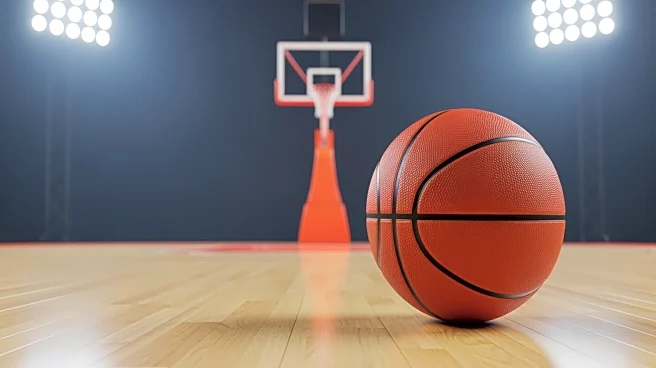What's Happening?
Nneka Ogwumike, a former WNBA MVP, has signed with Project B, a new professional women's basketball league set to begin play in Europe and Asia in November 2026. Ogwumike is the first known player to join this league, which promises higher salaries and equity
stakes for its players compared to the WNBA. Project B plans to feature six teams, each with 11 players, and aims to offer more lucrative compensation packages. This development comes as the WNBA and its players' union are engaged in negotiations over a new collective bargaining agreement, with salary and revenue sharing as key issues. Ogwumike, who is also the union president, highlighted the importance of the equity stake offered by Project B as a significant factor in her decision to join.
Why It's Important?
The launch of Project B represents a significant shift in women's professional basketball, offering players not only higher salaries but also equity stakes, which is uncommon in women's sports. This move could potentially influence ongoing WNBA negotiations, as players seek better compensation and revenue sharing. The involvement of high-profile investors and the promise of a global league could attract more top talent, challenging the WNBA's dominance. For players like Ogwumike, this offers a chance to maximize their earnings and influence the sport's future. The league's innovative approach, including a traveling circuit and streaming plans, could reshape how women's basketball is consumed and valued globally.
What's Next?
Project B plans to start its inaugural season in November 2026, running through April 2027, without conflicting with the WNBA schedule. As the league prepares for its launch, it aims to attract more top players and finalize its format, which includes a tournament-style competition in various cities. The WNBA and its players' union continue to negotiate a new collective bargaining agreement, with the current extension set to expire soon. The outcome of these talks could be influenced by Project B's offerings, potentially leading to changes in how the WNBA compensates its players. Additionally, Project B's success could inspire similar models in other sports, promoting equity and player involvement in league operations.
Beyond the Headlines
Project B's model of offering equity stakes to players aligns with trends in the tech industry, where employees often share in the company's success. This approach could set a precedent for other sports leagues, emphasizing the importance of player empowerment and financial security. The league's global reach and innovative format may also enhance the visibility and popularity of women's basketball, challenging traditional sports broadcasting models. As more players seek opportunities that align with their values and financial goals, Project B could catalyze broader changes in how women's sports are structured and monetized.

















